
Brian Wilson Aldiss was an English writer, artist and anthology editor, best known for science fiction novels and short stories. His byline reads either Brian W. Aldiss or simply Brian Aldiss, except for occasional pseudonyms during the mid-1960s.

Horror is a genre of fiction that is intended to disturb, frighten or scare. Horror is often divided into the sub-genres of psychological horror and supernatural horror, which are in the realm of speculative fiction. Literary historian J. A. Cuddon, in 1984, defined the horror story as "a piece of fiction in prose of variable length... which shocks, or even frightens the reader, or perhaps induces a feeling of repulsion or loathing". Horror intends to create an eerie and frightening atmosphere for the reader. Often the central menace of a work of horror fiction can be interpreted as a metaphor for larger fears of a society.
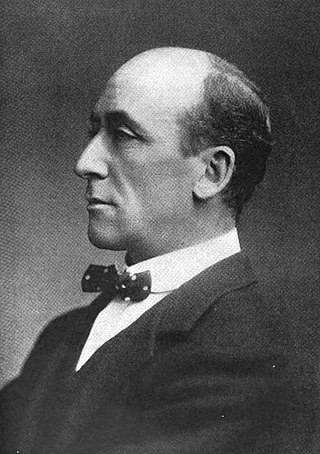
Algernon Henry Blackwood, CBE was an English broadcasting narrator, journalist, novelist and short story writer, and among the most prolific ghost story writers in the history of the genre. The literary critic S. T. Joshi stated, "His work is more consistently meritorious than any weird writer's except Dunsany's" and that his short story collection Incredible Adventures (1914) "may be the premier weird collection of this or any other century".

Remain in Light is the fourth studio album by American rock band Talking Heads, released on October 8, 1980 by Sire Records. It was recorded at Compass Point Studios in the Bahamas and Sigma Sound Studios in Philadelphia during July and August 1980. It was the last Talking Heads album to be produced by Brian Eno.

Christopher Priest is a British novelist and science fiction writer. His works include Fugue for a Darkening Island, The Inverted World, The Affirmation, The Glamour, The Prestige, and The Separation.
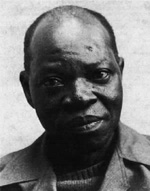
Amos Tutuola was a Nigerian writer who wrote books based in part on Yoruba folk-tales.
My Life in the Bush of Ghosts may refer to:

A ghost story is any piece of fiction, or drama, that includes a ghost, or simply takes as a premise the possibility of ghosts or characters' belief in them. The "ghost" may appear of its own accord or be summoned by magic. Linked to the ghost is the idea of a "haunting", where a supernatural entity is tied to a place, object or person. Ghost stories are commonly examples of ghostlore.
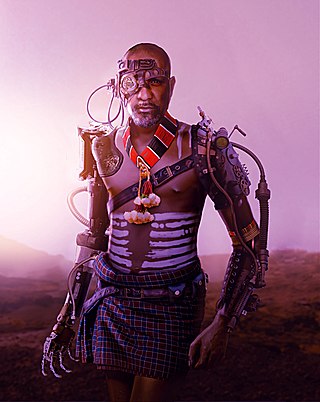
Afrofuturism is a cultural aesthetic, philosophy of science, and history that explores the intersection of the African diaspora culture with science and technology. It addresses themes and concerns of the African diaspora through technoculture and speculative fiction, encompassing a range of media and artists with a shared interest in envisioning black futures that stem from Afro-diasporic experiences. While Afrofuturism is most commonly associated with science fiction, it can also encompass other speculative genres such as fantasy, alternate history, and magic realism. The term was coined by Mark Dery, an American Cultural critic in 1993 and explored in the late 1990s through conversations led by Alondra Nelson.
African American literature is the body of literature produced in the United States by writers of African descent. It begins with the works of such late 18th-century writers as Phillis Wheatley. Before the high point of enslaved people narratives, African American literature was dominated by autobiographical spiritual narratives. The genre known as slave narratives in the 19th century were accounts by people who had generally escaped from slavery, about their journeys to freedom and ways they claimed their lives. The Harlem Renaissance of the 1920s was a great period of flowering in literature and the arts, influenced both by writers who came North in the Great Migration and those who were immigrants from Jamaica and other Caribbean islands. African American writers have been recognized by the highest awards, including the Nobel Prize given to Toni Morrison in 1993. Among the themes and issues explored in this literature are the role of African Americans within the larger American society, African American culture, racism, slavery, and social equality. African-American writing has tended to incorporate oral forms, such as spirituals, sermons, gospel music, blues, or rap.
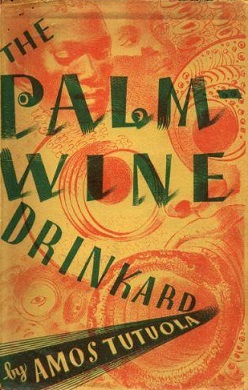
The Palm-Wine Drinkard is a novel published in 1952 by the Nigerian author Amos Tutuola. The first African novel published in English outside of Africa, this quest tale based on Yoruba folktales is written in a modified English or Pidgin English. In it, a man follows his brewer into the land of the dead, encountering many spirits and adventures. The novel has always been controversial, inspiring both admiration and contempt among Western and Nigerian critics, but has emerged as one of the most important texts in the African literary canon, translated into more than a dozen languages.
The lost world is a subgenre of the fantasy or science fiction genres that involves the discovery of an unknown Earth civilization. It began as a subgenre of the late-Victorian adventure romance and remains popular into the 21st century.

My Life in the Bush of Ghosts is the first collaborative studio album by Brian Eno and David Byrne, released in February 1981. It was Byrne's first album without his band Talking Heads. The album integrates sampled vocals and found sounds, African and Middle Eastern rhythms, and electronic music techniques. It was recorded before Eno and Byrne's work on Talking Heads' 1980 album Remain in Light, but problems clearing samples delayed its release by several months.

The Coral Island: A Tale of the Pacific Ocean (1857) is a novel written by Scottish author R. M. Ballantyne. One of the first works of juvenile fiction to feature exclusively juvenile heroes, the story relates the adventures of three boys marooned on a South Pacific island, the only survivors of a shipwreck.

Black science fiction or black speculative fiction is an umbrella term that covers a variety of activities within the science fiction, fantasy, and horror genres where people of the African diaspora take part or are depicted. Some of its defining characteristics include a critique of the social structures leading to black oppression paired with an investment in social change. Black science fiction is "fed by technology but not led by it." This means that black science fiction often explores with human engagement with technology instead of technology as an innate good.
Speculative fiction is defined as science fiction, fantasy, and horror. Within those categories exists many other subcategories, for example cyberpunk, magical realism, and psychological horror.
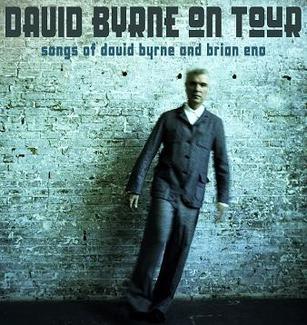
The Songs of David Byrne and Brian Eno Tour is a 2008–2009 promotional concert tour of music co-written by David Byrne and Brian Eno with performances by Byrne. In addition to being a retrospective of the duo's collaborations, the tour promoted the album Everything That Happens Will Happen Today. The musical performers were accompanied by dancers who were choreographed to several songs. Performances were held across the world and later documented on a tour EP and a concert film.

The House of Discarded Dreams is a 2010 fantasy novel by Ekaterina Sedia about a college student who experiences many fairy tales and legends as she finds her place in the world.
"The Jezebel Spirit" is the fifth song from the 1981 album My Life in the Bush of Ghosts by David Byrne and Brian Eno. It was released as a single the same year.














